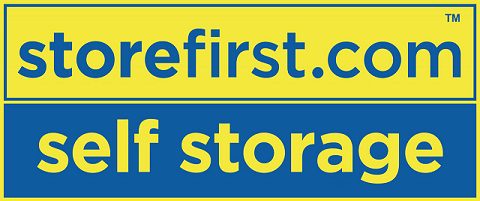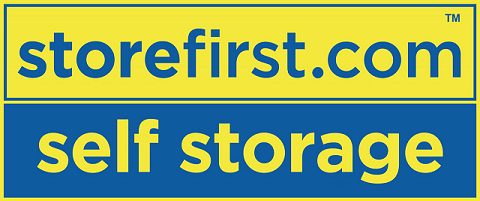A meeting of victims in the collapsed Park First investment scheme to approve the administrators’ proposals has been adjourned to 25 November, after a proposal to appoint alternative administrators was not included on the agenda.
Smith & Williamson (also administering Reyker Securities and London Capital and Finance) were the choice of Park First’s directors.
US-based Safe or Scam LLC has proposed an alternative administrator, Quantuma LLP (currently attempting to gain control of collapsed care home investment scheme Carlauren Group).
Safe or Scam characterise Smith & Williamson’s proposals as amounting to the write off of £115m of debt owed by Park First group companies to the companies in administration.
The administrator’s report confirms that the four Park First companies involved in the CVAs are owed a total of £115.4m by other companies in the Park First group, but that this £115.4m “has no recoverable value”.
They are actually saying that these four Park First companies transferred £115.4m to other group companies and there is no chance of recovering that money for the investors ! There has been no explanation why this money was transferred nor any explanation as to why is cannot be recovered. The administrators are just expecting creditors to accept a loss of that magnitude because they tell them to. So….. if creditors vote FOR the CVA proposals what effect would this have ? Well, if they vote FOR the proposals they would be agreeing to the following:
To write off £115.4m where the administrator has not even told them which companies took the money, why they were paid the money and why it is not possible to recover it; and
To sign away their rights to be able to take any form of recovery action against any of the parties involved; and
To allow the existing management to continue to run the businesses without any investigation into their conduct or the possible misappropriation of funds.
I asked S&W for comment on whether this was an accurate description of their proposals a week ago, and have not received a reply.
In a subsequent blog post on Saturday 12th October, Safe or Scam accused S&W of misinforming creditors by implying that a proposed £33m cash injection from Group First companies was contingent on Smith & Williamson’s proposals (including the £115m debt write off) being accepted, and the company entering a Company Voluntary Arrangement.
In short: either take £33m or risk getting nothing.
According to SOS, this was “erroneous”; the FCA has confirmed to rival suitors Quantuma LLP that the £33m should still be available to a liquidator, whether the original proposals are accepted or not.
The meeting of creditors has been rescheduled for the 25th at City Temple Conference Centre, London.
Comment
The rescheduled meeting sets up an intriguing clash for the fate of the administration between the Park First directors’ chosen administrators and Safe or Scam’s.
The parallel between London Capital & Finance and Park First goes beyond the fact that the unrelated collapses of both are being cleaned up by Smith & Williamson.
In both cases Smith & Williamson were appointed by the directors of the unregulated investment schemes themselves.
There is of course no suggestion that S&W are failing to carry out their statutory duties to act in the interests of creditors, over the people who appointed them if necessary.
There is also no question that the first job of an administrator of a collapsed unregulated investment scheme is to win the trust of creditors – and this goes double when the administrators were appointed by the people who lost their money in the first place.
Smith & Williamson’s appointment to London Capital & Finance was followed by a series of gaffes, which included unquestionably parroting the idea that LCF investors were sophisticated and high-net-worth (which very quickly turned out to be false), and saying on national radio that it was a good thing that LCF invested in a handful of companies linked to the directors, rather than hundreds of SMEs as investors had been led to believe, because it made the administrators’ job easier.
(Which is true, but the kind of thing you should look over your shoulder before saying if you’re at the Friday night office social, and is a downright stupid thing to say on national radio in front of stricken investors.)
S&W also claimed in the same interview that “the numbers all add up” and suggested investors could hope to get their money back; only to later reveal that what the numbers added up to was 80% losses as a best case scenario.
All that has however been left in the past, and there was no serious attempt to replace S&W with completely independent administrators of LCF investors’ own choice. Nor has there been any suggestion that S&W hasn’t maximised recoveries so far.
By contast, in the case of Park First Safe or Scam are accusing Smith & Williamson of being far too quick to effectively write off £115m of intercompany loans by proposing a Company Voluntary Arrangement.
Whichever choice the investors make, no-one can deny that more scrutiny over where the money went and whether it can be recovered is sorely needed.
Park First investors sue Park First and its directors for “fraudulent misrepresentation”
In other Park First news, a group of Park First investors are suing both Park First itself and Park First owner Toby Whittaker personally, alongside others including Park First director Ruth Almond, the Evening Standard reveals.
The investors are seeking £6 million which suggests that they represent a relatively small percentage of Park First investors.
A key part of the scheme was that the Park companies would sub-lease the plots back from the investors, offering a guaranteed return of 8%. The company said “projected returns” would rise to 10% in years three and four and 12% in the two following years.
In fact, the claim says, the sub-leases only lasted for two years, after which Park broke them and failed to provide subsequent services, leaving the plots impossible to sell. The investors also claim Whittaker’s companies misled them that they would easily be able to sell their spaces if they wanted to. There was no secondary market to buy them, which Whittaker knew, the case alleges.
The claim says some of the car parks in Glasgow were fenced off, making it impossible for them to return the kinds of profits being promised.
Park First director Ruth Almond said “The action will continue to be defended. We believe investors would be better served by pursuing options set out by the administrators.” That would be the option which apparently involves writing off most of the liability owed by Park First discussed above, then.
In general it takes exceptional circumstances for directors to be held personally liable for the failings of their companies; limited liability companies are called that as a reason.
Whether such circumstances exist remains to be proved in court.
Sadly, people investing lots of money in obscure micro-cap unregulated investments and losing all their money is not in itself an exceptional circumstance.
Update 17.10.19
The FCA has now also joined the legal fray, the Evening Standard reports.
The FCA’s action alleges that Park First was an illegal collective investment scheme, which we already knew as that was why it was originally shut down in late 2017 (not 2016 as the Standard says).
More seriously, the FCA alleges that Park First’s directors claimed the parking spaces were being sold at a 25% discount, based on independent valuations, but were “aware that the valuations were based on unrealistic returns”.
The FCA is suing Park First owner Toby Whittaker, director John Slater, Park First and numerous other connected firms, demanding the defendants repay a “just sum” to be distributed to victims.
The FCA has justified its lack of previous action, which allowed Park First to remain in control of the scheme’s assets, and its attempts to return the money to Park First investors, on the basis that if it had wound up the companies earlier, it might have made it less likely that investors got their money back.
Whether leaving Park First and its directors in overall charge of the money for another one-and-a-half years succeeded in increasing recoveries for investors remains to be seen.
In the original settlement in late 2017, the FCA secured a “promise” from Park First not to dispose of their assets, and ringfenced the sale proceeds of a car park at Luton Airport plus a further £1 million – £33m in total – to meet buyback payments for investors. This is the payment at the centre of the dispute above.







